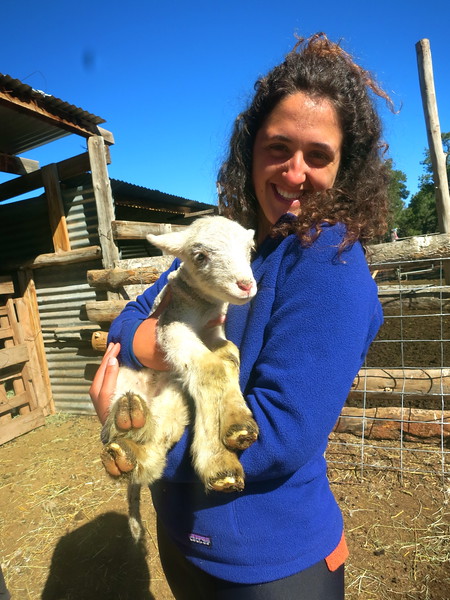
The crisp morning air pierces the only visible skin on my body, reddening my cheeks as I slowly move from the warmth of my sleeping bag to the cold outside world. Gradually, awareness enters my body as I begin to realize the bathroom isn’t the closest tree, but a code locked door behind which lies conveniences only the front country can provide. We are no longer scrambling down slickrock in Horseshoe Canyon, trudging through quicksand in the Dirty Devil River, or cozied up in Richard Begay’s Hogan. Today we find ourselves in Blanding, Utah. Situated in the southeast corner of the state, this small town may have more controversy than the passerby might have originally perceived.
As Chamomile lavender tea steeps in my blue enameled cup, my hair sprawls out in every direction, unwilling to be tamed, and eye boogers still resting comfortably in the corners of my eye, I sit daydreaming of the adventures soon to come in Dark Canyon. Suddenly, a big red ford truck pulls up behind our overflowing trailer at the base of the campsite. As I sit, still fully immersed in my thoughts, I barely notice a short, stout man sporting a camouflage jacket and hat walking up to our picnic table. As he slowly approaches the table, decorated with food from the night before, he states in a deep voice, “I believe you are the ones I am looking for.” Thrown off guard, as the speaker wasn’t supposed to arrive for another hour, we scramble to adequately prepare ourselves for him. Malcolm Lehy, a native of the Ute Mountain Ute tribe has graciously agreed to come and speak with WRFI about the Bears Ears National Monument.
The Bear’s Ears National Monument, designated through the Antiquities Act by President Obama in 2016, is a diverse landscape of approximately 1.35 million acres filled with as writer Anna Brody described it, “ deep sandstone canyons, high red rock mesas, aspen studded mountains and wide turquoise sky.” In the heart of the canyon sits two distinct buttes, jutting out forming what is commonly referred to as the Bears Ears. These sagebrush filled hills hold sacred and historical importance to many native tribes in the region, still being used for ceremonies and spiritual rituals yearly. The ears; however, aren’t the only areas of this land in which indigenous peoples use, but scattered around Cedar Mesa, ruins and ancient sites can also be found, leaving remnants of the original inhabitants of this land. As Malcolm speaks about the importance of this land, what it means for his tribe, and the reason he speaks out about it, I am enamored by the passion and vigor he holds in his voice. Sharing cultural significances, personal thoughts, and historical events, Malcolm spins us a web of stories, all of which express the importance of knowledge. As he asks what the most powerful thing in the world is, he points to his head and states, “This is. Use your mind. Your mind is the most powerful thing in the world.”
As I sit on the picnic table, my hair flying everywhere, my long underwear and fleece jacket pasted to my body and my tea untouched, I listen intently to a man, so willing to share his knowledge to anyone who will listen. Questions fly around my head, as I wait for a chance to ask them. I wonder about the formation of the Tribal coalition, his role, if any in advising the land management of the monument, his thoughts on the opposition to the designation, and the list goes on. Waiting for a chance to ask questions, a chance that never comes.
Just as Malcolm started, he finishes; abruptly and suddenly, leaving only gratitudes and pleasantries left before he is off. As I sit there waving as he drives away, I am reminded of what Barry Lopez has said, “When we enter the landscape, we are obligated, I think to pay attention rather than constantly pose questions.” I believe this also can apply to listening to people. Although I was ready to ask questions, the need wasn’t there. All I needed to do was pay attention, listen.
I am thankful for the opportunity to meet Malcolm Lehy. I am thankful for his willingness to share. I am thankful for the ability to listen.